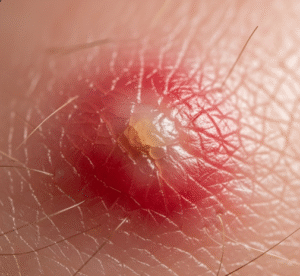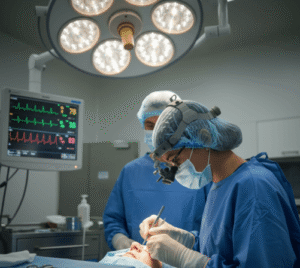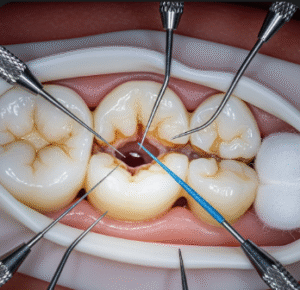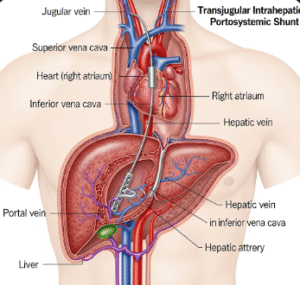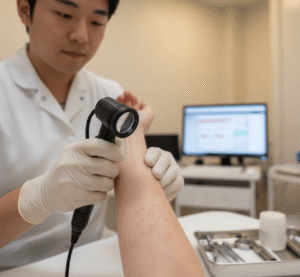Overview
Umbilical Hernia is a condition in which part of the intestine or abdominal tissue protrudes through a weak spot in the abdominal muscles near the belly button (umbilicus). It is especially common in newborns but can also affect adults. While most umbilical hernias in infants resolve on their own, adult cases often require surgical repair to prevent complications such as pain or tissue strangulation.
What is Umbilical Hernia
Umbilical Hernia is a protrusion of abdominal contents—typically intestines or fat—through the umbilical ring, a natural opening in the abdominal wall that allows the umbilical cord to pass during fetal development. After birth, the ring usually closes on its own. If it fails to do so or reopens due to pressure or muscle weakness, a hernia may form. The bulge is most noticeable when coughing, crying, or straining and may flatten when lying down.
Symptoms
- Visible bulge near the belly button, especially when standing or straining
- Swelling or fullness around the navel
- Discomfort or mild pain at the site (more common in adults)
- In infants, the bulge becomes prominent when crying or coughing
- Nausea or vomiting (in cases of complications)
- Incarcerated hernia: unable to push the bulge back in
- Strangulated hernia: severe pain, redness, or tenderness—requires emergency care
Causes
Umbilical hernias develop due to incomplete closure or weakening of the abdominal wall at the umbilicus. Contributing causes include:
- Congenital weakness in newborns
- Increased intra-abdominal pressure from obesity, heavy lifting, or pregnancy
- Multiple pregnancies
- Chronic coughing or constipation
- Abdominal surgery or trauma
- Age-related weakening of abdominal muscles
Risk Factors
- Premature birth or low birth weight (in infants)
- Female gender (more common in adult women)
- Obesity
- Pregnancy, especially multiple or closely spaced pregnancies
- Previous abdominal surgery
- Family history of hernias
- Liver disease with ascites (fluid accumulation in the abdomen)
Complications
- Incarceration: The herniated tissue becomes trapped and cannot return to the abdominal cavity
- Strangulation: Blood supply to the trapped tissue is cut off, causing tissue death—this is a surgical emergency
- Infection: Especially after strangulation or surgical repair
- Bowel obstruction
- Recurrence after surgical repair, though rare with modern techniques
- Pain or discomfort during physical activity
Prevention
While not all umbilical hernias can be prevented, certain measures can reduce risk and recurrence:
- Maintain a healthy weight
- Avoid heavy lifting or straining, especially after surgery
- Manage chronic coughing or constipation to reduce abdominal pressure
- Treat underlying conditions, such as ascites or respiratory disease
- Strengthen abdominal muscles under professional guidance
- Postnatal care for premature infants, including regular monitoring
Treatment Options in Korea
South Korea offers advanced surgical and non-surgical management options for umbilical hernias, with a focus on safety, comfort, and minimal recovery time:
- Observation: In infants under 2–3 years, as many hernias close spontaneously
- Surgical repair (herniorrhaphy or hernioplasty): The hernia is reduced, and the abdominal wall is strengthened using sutures or mesh
- Laparoscopic surgery: A minimally invasive option with faster recovery and less scarring, commonly offered for adult patients
- Emergency surgery: For incarcerated or strangulated hernias
- Postoperative care: Includes pain management, activity restrictions, and monitoring for recurrence
- Customized care for high-risk individuals (e.g., obese patients, those with liver disease or chronic conditions)
Korea’s healthcare system provides timely diagnostics, experienced surgical teams, and personalized follow-up to ensure excellent outcomes for umbilical hernia patients of all ages.






